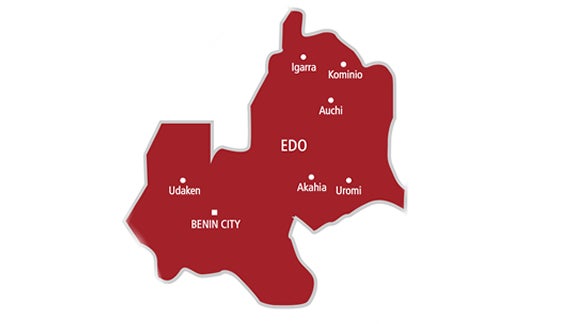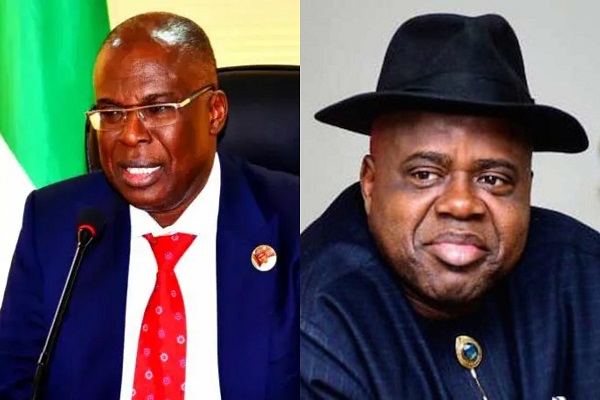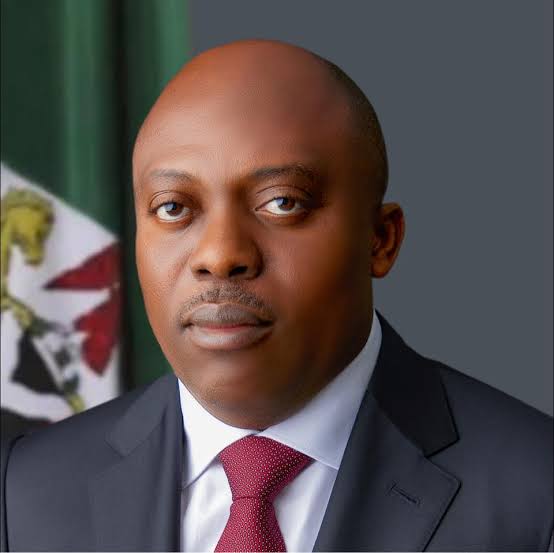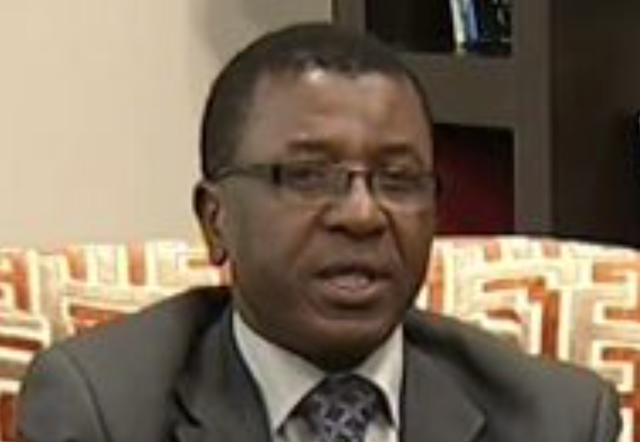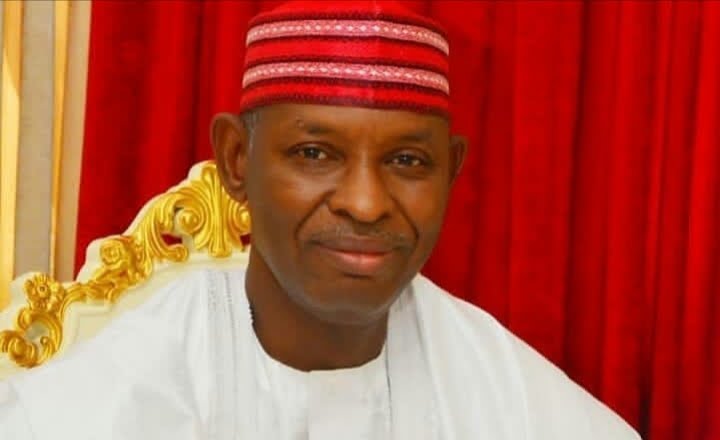We all foresaw the vexatious verdict of the Presidential Election Petition Court (PEPC) delivered on 6th September 2023 (6/9 verdict). Sensing that the PEPC would thwart substantial justice, the people began erecting billboards, signboards, and posters in Abuja with the inscription: “all eyes on the judiciary.” Disturbed that the inscription was pricking their consciences and passing judgment on them, they went about pulling down the billboards and yanking off the posters. However, the more they did that, the more billboards and posters sprang up in town and on social media with the said inscription. A few days before the unveiling of the 6/9 verdict, they engaged in blackmailing the citizens and warning them not to let the heavens fall simply because the outcome of the judgment was not in their favor. An undertaker publicly showered encomium on two lawyers representing President Bola Tinubu at the PEPC – Wole Olanipekun (SAN) and Lateef Fagbemi SAN, describing the duo as experts in election petition matters. The authorities announced beefing up tight security in Abuja to avert possible violent protests against the looming dangerous verdict. The PEPC, which had earlier rejected people’s application to televise the proceedings of the PEPC, suddenly announced that it would televise the delivery of the verdict, ostensibly to give a false impression that it subscribes to integrity and transparency.
Since the iniquitous 6/9 verdict was delivered, the country has been steeped in deep mourning. The unjust verdict continues to draw the ire of the people, especially the Nigerian youth. These are times that try men’s souls in Nigeria. We live in the most perilous times. Anyone who has not yet come to terms with this truth may be living in a fool’s paradise. Although the bullets may not be crisscrossing the airspace, the pre-existing legal order may not have been violently uprooted, and the heavenly firmament may not have evaporated, but the 6/9 verdict has murdered the remnant of the empty carcass called Nigeria. Augustine minced no words about it. When justice is taken away, all that is left in a kingdom are great robberies. Say whatever you like, but no man or woman of good conscience in Nigeria can be at ease with the vulcanized 6/9 verdict. Equally, no street, no Broadway, no village path in Nigeria can remain silent amid the stillness of death occasioned by the 6/9 judgment. Peace is not the absence of external war. With torn and bleeding hearts, we may be smiling, but we may not know peace until Nigeria goes the way she had been fated to go. I repeat: Nigeria must go the way she had been fated before the dawn of human flourishing in Nigeria.
Perhaps what is more perplexing about the riveting 6/9 verdict is that the five-member PEPC, with the greatest respect, wrongly descended into the arena of conflict. Inherent in our adversarial court system is the principle that a court must not descend into the area of conflict in favor of any of the parties in a case before the court. See, among other cases, Ayoade Vs. Spring Bank Plc. (2014); Nwafor vs. Nigeria Custom Service & ORS. (2018), where the courts held that a judge should not descend into the arena of conflict to make a case for a party. Why? Because it is against the run of the game and tenet of adjudication. Unfortunately, the PEPC, with the greatest respect, grievously erred in this aspect of our law. The PEPC constituted itself as counsel to the respondents and was arguing the respondents’ case. In descending into the arena in favor of the respondents, the PEPC treated with levity the overwhelming evidence tendered by the petitioners establishing that President Tinubu was illegally and unconstitutionally pronounced the winner of the February 25 Presidential election by Prof Mahmoud Yakubu, chair of the electoral body INEC amid complaints that the election was rigged by INEC. Like a hired assassin, the PEPC proceeded to decapitate the petitioners’ petition, including the cloud of petitioners’ witnesses. The PEPC struck out all the vital paragraphs of the petitioners’ petition on flimsy and illogical grounds. It rejected all the laws and legal authorities cited by the petitioners on pseudo-rationalization. One cannot help but feel a moral whiplash.
You will recall that during the hearing, the respondents’ counsel did not impugn or discredit the overwhelming evidence adduced by the petitioners. They promised to do so in their final address. Unfortunately, the respondents failed to do so during the final address. Yet the Tribunal entered judgment in their favor. It is trite and in consonance with the principle of natural justice that a court of law must remain an unbiased umpire in a case before it. The court cannot manufacture legal arguments or evidence for any of the parties. The court must rely on the defense of the party as it is put forward by the party. The court must not manufacture a defense for a defendant. For a defendant in a suit to succeed, he or she must succeed on the strength of his own defense, not on the strength of the “defense” manufactured for him or her by the court.
It is sad that Nigerian judges handling high-profile election cases are now accountable to the politicians in those cases rather than to the rule of law. This is why the jurisprudence of these judges is so disconnected from the Constitution and the Electoral Act that it sometimes seems to defy explanation. In terms of their overall performance and in meeting the justice and needs of the people, our judges should remember that they are accountable to the rule of law and the Nigerian people, not to the Peter Obis, Bola Tinubus, or Abubakar Atikus of this world. Mind you, the Peter Obis, Bola Tinubus, and Abubakar Atikus will come and go, but the rule of law remains unaltered, serving the succeeding generations of mankind. Consequently, our judges, with the greatest respect, are advised to interpret the law in a way that meets substantial justice of a particular case or in a way that fulfills the needs and aspirations of the Nigerian people, as envisioned in sections 13, 14 (1)(2)(a)(b)(c) of the 1999 Constitution. Dismissing an important electoral petition concerning the character of President Bola Tinubu to hold an exalted public office on mere whimsical and capricious technicalities, in my humble view, is a disservice to what is reasonably justifiable in a democratic society. The paradox of it all is that during the inauguration of the PEPC in Abuja, the most excellent Justice Haruna Tsammani asked lawyers representing all petitioners to avoid unnecessary technicalities and address the substance of their cases, yet the same PEPC used technicalities in dismissing the cases of the petitioners. Judges should adorn the breastplate of integrity, discipline, and impartiality in the discharge of their duty. Like Caesar’s wife, they should be seen to live above board. Many English judges are still honored and revered today because of their impeccable character. For example, the Master of Rolls, Rt. Hon. A. T Denning, was distinguished by both his exceptional lucidity of thought and character. During their stint at the Supreme Court, Justices Kayode Eso, Chukwudifu Akunne Oputa, Samson Odemwingie Uwaifo, Andrews Otutu Obaseki, Augustine Nnamani, and Anthony Nnaemezie Aniagolu, Ephraim Ibukun Akpata, Phillip Nnaemeka-Agu, Anthony Chukwunweike Idigbe, Adolphus Godwin Karibi Whyte, and others were distinguished by their intellectual versatility and enviable character. That is why their era at the Supreme Court is ascribed as the golden era of the Supreme Court. Our current Supreme Court Justices should emulate the sterling qualities of the aforementioned Justices in reviewing the unjust 6/9 verdict.
One of the main grounds that petitioners need to establish to prove that the election was invalid is corrupt practices and non-compliance with the provisions of the Electoral Act. Corrupt practices include electoral offenses like election fraud, bribery, and falsification of election results. Non-compliance refers to outright violations of the Electoral Act, 2022, and INEC Guidelines, which confer an undue advantage to the respondents. During the trial, the petitioners in the 6/9 verdict established that election results were not uploaded through the BVAS and IREv as stipulated by the Electoral Act. Yet, the PEPC, with the greatest respect, ruled that the electoral body INEC rightly uploaded results through other means. Section 60(5) of the Electoral Act, 2022 states: “On the conclusion of voting, the presiding officer shall transfer the results, including the total number of accredited voters and the results of the ballot, in a manner prescribed by the Commission.” What is the prescribed manner by the Commission? The prescribed manner is the BVAS, which INEC introduced to ensure that the electoral process is credible. The BVAS was introduced by INEC in line with Section 148 of the Electoral Act, which gives INEC the power to make guidelines and regulations to ensure the full effect of the law.
By virtue of Section 148 of the Electoral Act, INEC has been empowered to make Electoral Regulations and Guidelines for the 2023 Election. Paragraph 38 of the Regulation states: “On completion of all Polling unit voting and results procedures, the presiding officer shall: (i) Electronically transmit or transfer the result of the polling unit directly to the collation system as prescribed by the Commission (ii) Use the BVAS to upload a scanned copy of the EC8A to the INEC Result Viewing Portal (IREv), as prescribed by the Commission (iii) Take the BVAS and the original copy of each of the forms in a tamper-evident envelope to the registration area/ward collation officer, in the company of security agents. The polling agents may accompany the presiding officer to the RA/Ward Collation Centre.” With this extant law, it is baffling that the PEPC failed to nullify the February 25th Presidential election due to INEC’s failure to comply with the aforementioned provisions of the Electoral Act.
In their eagerness to dismiss the petitioners’ petition on flimsy grounds, the PEPC, with the greatest respect, failed to abide by the decisions of the Supreme Court in the cases of Mohammed Abacha V Federal Republic of Nigeria and Obasanjo V Buhari, among others. As argued by senior advocate Emeka Okwuosa Esquire, and I concur with him, “According to section 137 (i) (d) of our 1999 Federal Republic of Nigeria constitution as amended, anyone fined for any offense involving dishonesty or fraud, either civil or criminal, is not qualified to be president of Nigeria. The current CJN (Justice Kayode Ariwoola), while serving as a justice of the Supreme Court of Nigeria, declared in a case between Mohammed Abacha vs Federal Republic of Nigeria that ‘there can’t be forfeiture without a crime.’ In a majority decision, he defined forfeiture as the loss of a right, privilege, or property because of a crime, breach of obligation, or neglect of duty, while also declaring the word ‘forfeiture’ to mean the divestiture of property without any form of compensation. He inclusively noted that any person(s) who has forfeited property(ies) on the basis of a crime cannot be entitled to indemnity because it is a form of punishment, and there is no indemnity in Nigeria’s criminal procedure.
Even in America, where this crime of narcotics peddling was committed with its consequent forfeiture, Mr. Bola Ahmed Tinubu would have lost his right to vote and be voted for as a ‘felon’. Where then does his electoral qualification lie when even the highly revered distinguished Senator Opeyemi Bamidele, who happens to be Mr. Tinubu’s only witness at the tribunal, openly declared at the same tribunal that this petition was actually true and factual? There is no hiding place for a golden fish. In 2003, in the case between Obasanjo vs Buhari, the Supreme Court ruled that all that was required of Obasanjo was to score 25% only of all cast votes in Abuja and not an outright win. The Supreme Court adjudicated that a presidential candidate needs to score 25% in 2/3 of the states of the Federation and must still score 25% in Abuja. Equally in 2008, in the case between Buhari and Yar’Adua, the earlier precedent of the Supreme Court was upheld, and hence, Buhari’s petition was struck out. The Supreme Court judgments had laid the facts concerning this section of our constitution inta-allia: Abuja represents all Nigerians, and as such, any presidential candidate must show equal 25% popularity in Abuja as in 25% of all states of the federation. All past presidents, including late MKO Abiola, scored 25% in Abuja, and there shouldn’t be an exemption now as that section has not been amended.”
It is baffling that we are afraid of justice in Nigeria, but justice remains that vital thread that can knit Nigerian society together. Small wonder Aristotle praises justice to high heavens by stating that “neither the morning star nor the evening star is as glorious as justice.” To Cicero, “the brightest of virtues shines above all in justice.” Unfortunately, the five-member PEPC was focused on giving judgment to President Tinubu and the APC, neglecting the most important part of doing justice to Nigerian society. In Josiah V State, the late Justice Chukwudifu Akunne Oputa stated that justice is not a one-way traffic; justice is not even only a two-way traffic. Justice is really a three-way traffic – justice for the parties in the case and finally justice for the society at large whose norms and values cannot be desecrated.
In other words, Justice Oputa was simply stating that a judge cannot deliver a judgment that goes against public policy or a judgment that destroys the fabric of society or a judgment that legalizes or institutionalizes thievery or a judgment that renders what is reasonably justifiable in a democratic society as inutile. Let there be no mistake about it: the 6/9 judgment is antithetical to judicial norms and values. Apart from being a big threat to the independence of the judiciary, the narcissistic 6/9 verdict is a big threat to Nigeria’s corporate existence and national unity. It is a toxic verdict which, if left unturned, will serve as a dangerous judicial precedent that legalizes all manner of election impropriety, drug addiction, thievery, election rigging, and gerrymandering in Nigeria. If the callous 6/9 verdict is left unturned by the Supreme Court, it would render certain provisions of the Nigerian Constitution, especially section 137 and key provisions of the Electoral Act, inutile in future Presidential elections in Nigeria.
With the 6/9 bad precedent, future presidential elections in Nigeria are doomed. Criminal records of presidential candidates would no longer matter; electronic voting and transmission would be non sequitur; electoral irregularities and manipulations would no longer matter. If you accuse any future presidential candidate of not possessing the minimum educational qualification or being a criminal convict, he or she can cite the 6/9 verdict as a defense. With the horrific 6/9 verdict as a judicial precedent, it means that idiots, imbeciles, thieves, drug barons, and stark illiterates running for President in the future can point at 6/9 and feel justified and qualified for being in the presidential race. 6/9 is a complete break with Nigerian cultural heritage. There is no known Nigerian culture that endorses stealing, cheating, lying, election manipulation, bribery and corruption, drug addiction, imbecility, and nuisance. Therefore, the Supreme Court must overturn 6/9 to save not just our democracy from peril but our cultural heritage from peril too.
It is painful that the Bench in Nigeria has been constituted into an object of derision by the very judges who should labor to maintain its prestige. I tell friends that what is at stake in the ignominious 6/9 verdict is neither President Tinubu nor Peter Obi nor Abubakar Atiku. After all, death is the common destiny of mankind. Like all mortals, Tinubu, Atiku, and Obi will someday answer the call of God and bow out of the stage, leaving the younger politicians to continue the political experiment. What is really at stake in the unjust 6/9 verdict is the soul of the Nigerian judiciary. If the judiciary, a veritable third arm of government, is aborted, our democratic experiment will equally be aborted to the detriment of the governed. Before now, the judgments of the Supreme Court, especially in the high-profile political cases of Ihedioha V Hope Uzodinma, Lawan V Machina, and Godswill Akpabio V Independent National Electoral Commission (INEC) and others, had been attracting strong, passionate, and scathing public criticisms. Members of the public had been holding their heads in shame and shouting that justice has eluded Nigeria. The international community had been disappointed that the Nigerian courts are slavishly adhering to technical legalisms at the expense of substantial justice. Now, with the atrocious 6/9 verdict, hope of the common man in the judiciary as the bulwark of justice and an unbiased arbiter in the causes of the citizenry, amid the balkanizing influence of corrupt politicians and public figures, is completely shattered.
Consequently, the Supreme Court is respectfully invited to overturn the unjust 6/9 verdict. It is evident that justice was not manifestly seen to be done in the 6/9 verdict. This is why the 6/9 decision provokes public outrage. The public believes that the five-member PEPC was biased against the petitioners in the 6/9 case. As the Lord Chief Justice of England, Lord Hewart, laid down the dictum in the case of Rex v. Sussex Justices when he stated: “It is not merely of some importance but is of fundamental importance that justice should not only be done but should manifestly and undoubtedly be seen to be done.” The essence of the need for justice to be manifestly seen to be done was emphasized by the Master of the Rolls, Lord Denning, in Metropolitan Properties Co (FGC) Ltd v Lennon when he stated: “Justice must be rooted in confidence, and confidence is destroyed when right-minded people go away thinking, ‘The judge was biased.’”
